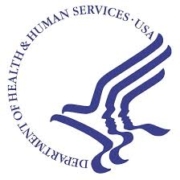The following is the latest health policy news from the federal government as of 2:30 p.m. on Tuesday, January 11. Some of the language used below is taken directly from government documents.
Provider Relief Fund
- HHS has updated its FAQ for reconsideration requests involving Phase 4 and rural hospital payments. Find the updated FAQ here.
 Department of Health and Human Services
Department of Health and Human Services
COVID-19
- HHS announced that beginning January 15, individuals with private health insurance coverage who purchase an over-the-counter COVID-19 diagnostic test authorized, cleared, or approved by the FDA will be able to have those test costs covered by their insurance. Insurers will be required to cover eight free over-the-counter home tests per covered individual per month. Over-the-counter test purchases will be covered in the commercial market without the need for a health care provider’s order or individualized clinical assessment and without any cost-sharing requirements such as deductibles, co-payments or coinsurance, prior authorization, or other medical management requirements. Learn more about how this process will work from this HHS news release; a CMS explanation of how to get free tests; and an HHS FAQ.
Health Policy Update
- HHS’s Health Resources and Services Administration (HRSA) has updated comprehensive preventive care and screening guidelines for women and for infants, children, and adolescents. Under the Affordable Care Act, certain group health plans and insurers must provide coverage with no out-of-pocket cost for preventive health services within these HRSA-supported comprehensive guidelines. Learn more about the updated guidelines in this HHS news release and the updated guidelines.
- HHS’s Office of the National Coordinator for Health Information Technology (ONC), in collaboration with standards development organizations and health IT stakeholders, has released the Project US@ Technical Specification Final Version 1.0. This new specification is a unified, cross-standards, health care specification that could be used across the health care industry for representing patient addresses (mailing, physical, billing, and more) to improve patient matching. Patient matching, and specifically how patient addresses are represented, has long been viewed as a critical component of nation-wide interoperability and the nation’s health IT infrastructure. ONC encourages state and federal agencies, public health organizations, payers, health IT developers, research organizations, health care providers, and others to consider adopting and implementing the final specification. Learn more from this HHS news release and see the Project US@ web page to learn more about the project and for a link to the final technical specification.
- HHS’s Office of Minority Health has extended to March 11 the deadline for nominations for delegates for the Center for Indigenous Innovation and Health Equity Tribal Advisory Committee. Learn more from this Federal Register notice.
- HHS’s Office of the Assistant Secretary for Planning and Evaluation has published a new issue brief, “Access to Preventive Services without Cost-Sharing: Evidence from the Affordable Care Act,” that summarizes the Affordable Care Act’s preventive services provisions for private health coverage, Medicare, and Medicaid; provides updated estimates of the number of people benefiting from these provisions nationally; and examines evidence on trends in utilization of preventive services and outcomes since the Affordable Care Act’s preventive services coverage requirements went into effect. Find the report here.
 Centers for Medicare & Medicaid Services
Centers for Medicare & Medicaid Services
Health Policy Update
- Medicare will begin funding 1000 new medical residency positions beginning in FY 2023. For information about how to apply for those positions, go here (and scroll down to “Section 126: Distribution of Additional Residency Positions”). The deadline for applications for FY 2023 positions is March 31, 2022.
- CMS has issued a proposed rule to revise Medicare Advantage Part C and Medicare Prescription Drug Benefit Part D regulations to implement changes involving marketing and communications, past performance, star ratings, network adequacy, medical loss ratio reporting, special requirements during disasters or public emergencies, and pharmacy price concessions. This proposed rule also would revise regulations addressing dual eligible special needs plans (D-SNPs), other special needs plans, and cost contract plans. According to CMS, the proposed rule would lower out-of-pocket prescription drug costs for beneficiaries with Medicare Part D; improve price transparency and market competition; improve beneficiaries’ experiences with Medicare Advantage and Part D, with a strong emphasis on individuals who are dually eligible for Medicare and Medicaid; and hold Medicare Advantage and Part D plans to a higher standard in offering benefits and improve health equity in the programs.” Learn more about the proposed rule from this CMS news release, a CMS fact sheet describing the rule in greater detail, and the proposed rule itself. Interested parties have until March 7 to submit written comments.
- Included in this same proposed rule is a request for comments as CMS assesses the impact of Medicare Advantage organizations’ prior authorization requirements for patient transfer on a hospitals’ ability to effectively manage resources and provide appropriate and timely care during a public health emergency. Learn more about this request from this excerpt from the proposed rule.
- CMS has informed nursing home operators that it will introduce data on nursing home staff turnover and weekend staffing to the Care Compare website in January of 2022 and the Nursing Home Five Star Quality Rating System in July 2022. Learn more, including the rationale for including this information, from this memo from CMS to nursing home operators.
- CMS’s Center for Medicare and Medicaid Innovation (CMMI) has published a list of the initial participants in its Kidney Care Choices Model, which was launched on January 1. Learn more about the model here and find a list of the participants here.
- CMMI has published evaluation and savings reports for four of the 13 states that participate in its Financial Alignment Initiative for Medicare-Medicaid Enrollees program. Go here to learn about the program and find links to the reports.
COVID-19
- CMS has created a new HCPCS code for VEKLURY™ (remdesivir) antiviral medication when administered in an outpatient setting. The new code, J0248, is available for use by all payers and is effective for dates of service on or after December 23, 2021. Learn more in this special edition of CMS’s online newsletter MLN Connects.
- CMS has updated its nursing home visitation FAQ.
 Centers for Disease Control and Prevention
Centers for Disease Control and Prevention
- The CDC has updated its guidance on the differences between quarantine and isolation and who needs to quarantine or isolate, and for how long, based on different types of exposure to or infection with COVID-19. Find this update here.
- The CDC has posted new information about the need for COVID-19 vaccinations and boosters for those who are immunocompromised, including advice that some such people receive an additional primary vaccine before receiving a booster shot. Find that guidance here.
- The CDC has updated its COVID-19 vaccination recommendations for children and teens.
- It is already known that COVID-19 infection is associated with worsening of diabetes symptoms and that persons with diabetes are at increased risk for severe COVID-19. It also is believed that COVID-19 may induce newly diagnosed diabetes. Now, the CDC has published new research indicating that persons under the age of 18 with COVID-19 were more likely to receive a new diabetes diagnosis more than 30 days after infection than were those without COVID-19 and those with pre-pandemic acute respiratory infections. Go here to see the CDC’s report.
- The CDC has updated its information about possible side effects from COVID-19 vaccines.
- The CDC has published new research that finds that the estimated effectiveness of two doses of Pfizer vaccine against multisystem inflammatory syndrome in children (MIS-C) was 91 percent. Among critically ill COVID-19 MIS-C patients requiring life support, all were unvaccinated. Go here to see the CDC’s report.
- The CDC has updated its infection prevention and control assessment tool for nursing homes preparing for COVID-19.
- The CDC has posted updated information about Operation Expanded Testing, which seeks to increase access to testing nationwide, especially for communities that have been disproportionately affected by the COVID-19 pandemic. The program provides no-cost testing to child care centers, K-12 schools, historically black colleges and universities, under-resourced communities, and congregate settings, such as homeless shelters, domestic violence and abuse shelters, non-federal correctional facilities, and other qualified sites. The program can perform millions of tests through July 1, 2022, with contractor-provided laboratory services that include specimen collection supplies, shipping materials, laboratory testing, and results reporting. Recipient sites contribute staff to collect specimens. Learn more from this CDC resource.
- The CDC is seeking nominations for individuals to serve on its Advisory Committee on Breast Cancer in Young Women. Nominations are due February 28. Learn more from this Federal Register notice.
Food and Drug Administration
- The FDA has amended the emergency use authorization for the Moderna COVID-19 vaccine to shorten the time between the completion of a primary series of the vaccine and a booster dose to at least five months for individuals 18 years of age and older. The previous standard was six months. Learn more from this FDA news release.
Medicare Payment Advisory Commission (MedPAC)
- The Government Accountability Office is accepting nominations for individuals to serve as MedPAC commissioner beginning in May of this year. Letters of nomination and resumes are due February 11. Learn more from this Federal Register notice.
Congressional Research Service
- A new Congressional Research Service study, “Occupational Safety and Health Administration (OSHA): COVID-19 Emergency Temporary Standards (ETS) on Health Care Employment and Vaccinations and Testing for Large Employers,” reviews OSHA’s authority to propose such a requirement, its promulgation of the requirement, legal action in response to its release, and its eventual withdrawal. Find the study here.
 Stakeholder Events
Stakeholder Events
CDC – Clinical Outreach Communication Activity – January 12
Through its Clinical Outreach Communication Activity program, the CDC will hold a webinar on “What Clinicians Need to Know About the New Oral Antiviral Medications for COVID-19” on Wednesday, January 12 at 2:00 p.m. Go here to learn more about the webinar, its purpose, the individuals who will be presenting, and how to participate.
MedPAC – January 13-14
The Medicare Payment Advisory Commission (MedPAC) will hold its next public meeting on January 13 and 14. Go here for a meeting agenda and information about virtual participation.
MACPAC – January 20-21
The Medicaid and CHIP Payment and Access Commission (MACPAC) will hold its next public meeting on January 20 and 21. Watch this space for a meeting agenda and information about virtual participation.

 Department of Health and Human Services
Department of Health and Human Services Centers for Medicare & Medicaid Services
Centers for Medicare & Medicaid Services  Centers for Disease Control and Prevention
Centers for Disease Control and Prevention Stakeholder Events
Stakeholder Events